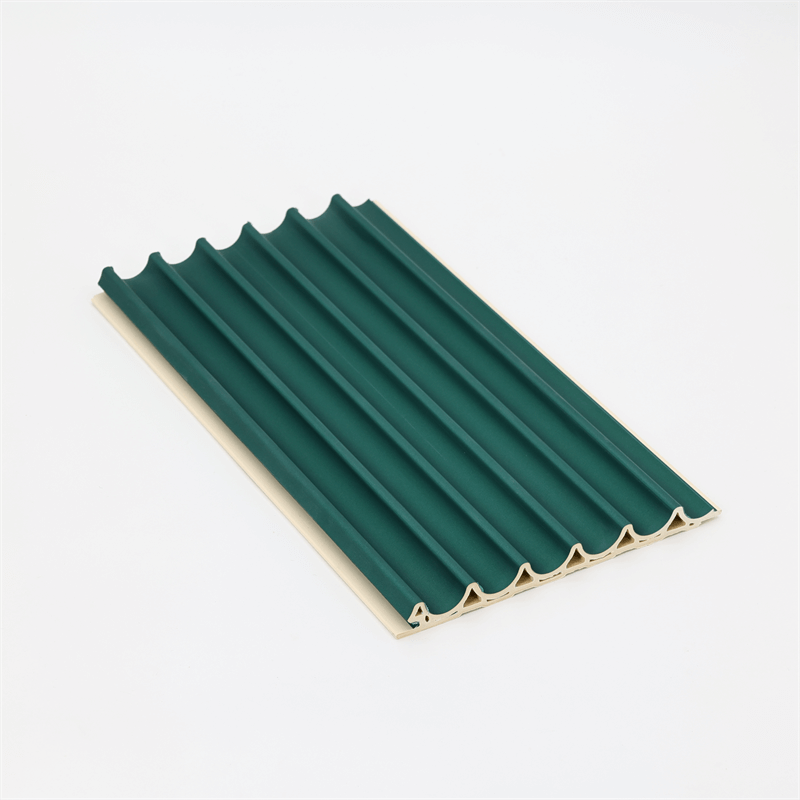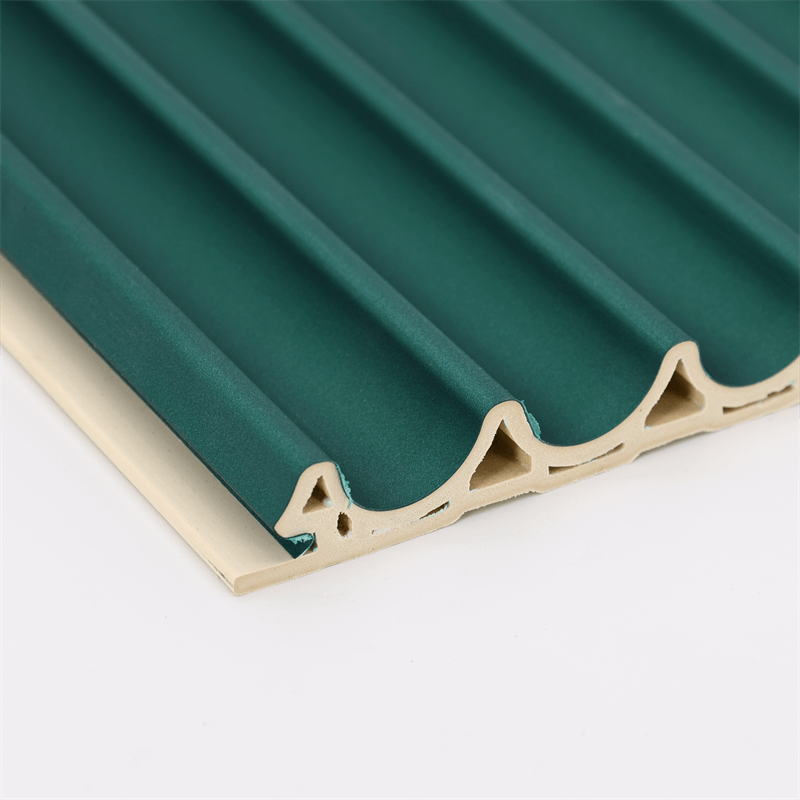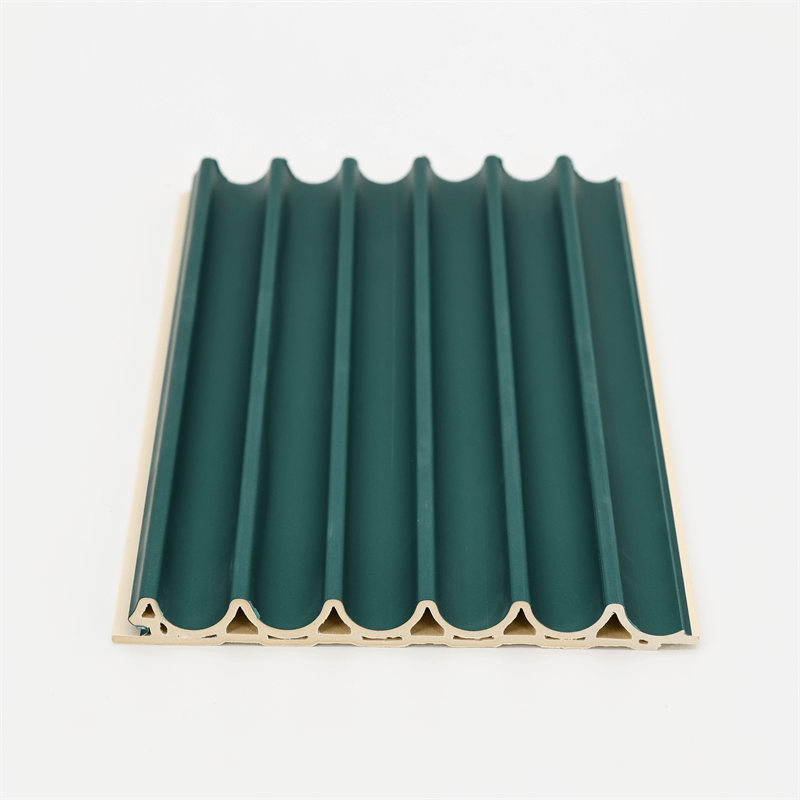
When it comes to creating a beautiful and functional living or working environment, the choice of building materials plays a crucial role.
In recent years, Wood Plastic Composite (WPC) wall panels have gained immense popularity due to their outstanding combination of aesthetics, durability, and waterproof properties.
These innovative panels have revolutionized the construction industry, offering an ideal solution for both interior and exterior spaces.
This article delves into the reasons why WPC wall panels have become the perfect waterproof solution, exploring their unique features, advantages, and applications.
Unraveling the Characteristics of WPC Wall Panels
What are WPC Wall Panels?
Wood Plastic Composite (WPC) wall panels are a composite material composed of wood fibers, thermoplastics, and additives.
The mixture results in a versatile material that possesses the natural appearance of wood and the enhanced durability of plastic.
The combination of these components creates a highly stable and rigid composite that can withstand various environmental conditions, making it an excellent choice for waterproofing applications.
Water-Resistant Properties of WPC Wall Panels
The primary advantage of WPC wall panels lies in their exceptional water-resistant properties.
Unlike traditional wood, WPC panels do not absorb water or moisture, preventing issues like warping, rotting, or swelling.
This feature makes WPC panels suitable for spaces that are exposed to humidity, water splashes, or even direct rain.
Whether used in bathrooms, kitchens, or outdoor areas, WPC wall panels provide a robust waterproof solution, protecting the underlying structure from moisture-related damage.

Advantages of Using WPC Wall Panels for Waterproofing
Durability and Longevity
WPC wall panels are known for their longevity and low-maintenance characteristics.
Their resistance to moisture, mold, and decay ensures that they maintain their structural integrity and appearance for an extended period.
The absence of cracks or crevices on the surface of WPC panels also prevents water from seeping through, contributing to their overall longevity and performance.
Versatility in Design
Another compelling reason to choose WPC wall panels for waterproofing is the wide range of design options available.
These panels come in various textures, colors, and finishes, offering versatility in design choices.
Whether you prefer a contemporary, rustic, or traditional look, WPC panels can seamlessly adapt to any interior or exterior theme, adding to the overall aesthetics of the space.
Eco-Friendly and Sustainable
WPC wall panels are an eco-friendly building material as they are manufactured using recycled wood fibers and plastic.
By repurposing waste materials, WPC panels contribute to reducing deforestation and the environmental impact of plastics.
Choosing WPC panels for waterproofing projects aligns with sustainable building practices and promotes responsible resource usage.
Ease of Installation
Installing WPC wall panels is a straightforward and efficient process.
Their lightweight nature makes them easy to handle and transport, reducing installation time and labor costs.
Additionally, the interlocking or tongue-and-groove design of some WPC panels facilitates a seamless and secure installation, ensuring a tight fit that minimizes the risk of water infiltration.
Applications of WPC Wall Panels in Interior Spaces
Waterproofing Bathrooms and Kitchens
Bathrooms and kitchens are areas prone to constant exposure to water and moisture.
Using WPC wall panels in these spaces offers a reliable solution for waterproofing, protecting the walls and underlying structures from potential water damage.
Moreover, the aesthetic appeal of WPC panels enhances the overall ambiance of these spaces, creating a modern and stylish environment.
Enhancing Interior Design
WPC wall panels are not limited to wet areas; they can be used in various interior spaces to enhance the design and provide waterproofing benefits.
Whether in living rooms, bedrooms, or offices, WPC panels add a touch of sophistication and elegance to the decor while safeguarding the walls from water-related issues.

Exterior Applications of WPC Wall Panels
Waterproofing Outdoor Walls and Facades
Exterior walls and facades are constantly exposed to weather elements, making them susceptible to water damage.
Using WPC wall panels for exterior applications ensures the walls remain waterproof and resistant to deterioration caused by rain, humidity, or temperature fluctuations.
Moreover, the UV resistance of some WPC panels ensures that they maintain their color and appearance over time, even when exposed to direct sunlight.
Waterproof Decking and Cladding
WPC wall panels are also an excellent choice for waterproofing decks and cladding.
The water-resistant properties of WPC panels make them ideal for areas near pools, patios, or garden landscapes, where water splashes are common.
The slip-resistant surface of some WPC panels enhances safety in these outdoor spaces, providing a practical and stylish solution for waterproof decking and cladding.
Wood Plastic Composite (WPC) wall panels have emerged as the perfect waterproof solution for interior and exterior spaces, revolutionizing the construction industry.
Their exceptional water-resistant properties, combined with durability, versatility, and aesthetic appeal, make them a popular choice for various applications.
Whether used in bathrooms, kitchens, living rooms, or exterior facades,
WPC wall panels provide reliable protection against moisture-related issues while elevating the overall design and ambiance of the space.
With their eco-friendly attributes and ease of installation, WPC panels are a sustainable and practical choice for modern building projects, ensuring walls stay protected and stylish for years to come.
